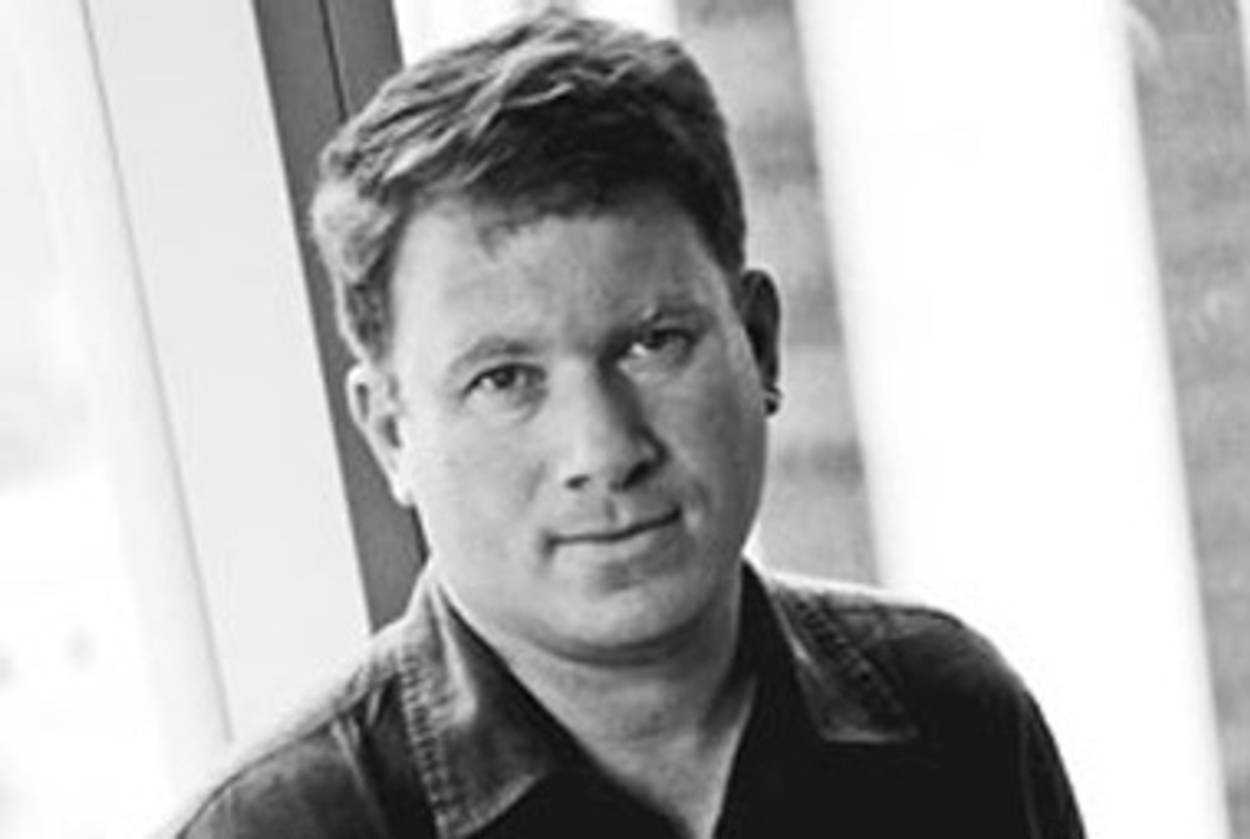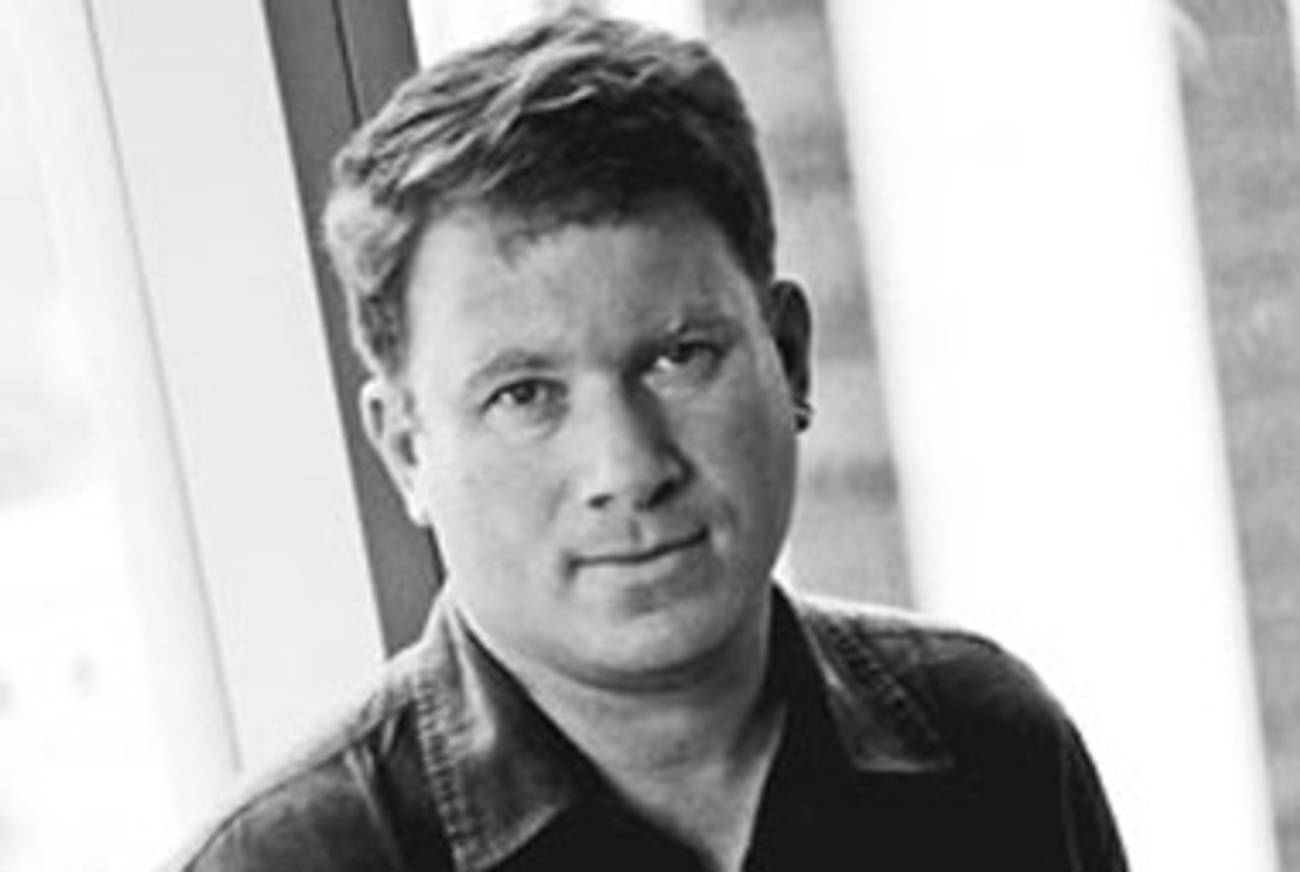Debating Israel From Afar
Jeffrey Goldberg and Jeremy Ben-Ami lock shofars




At one point last night Jeffrey Goldberg opined on the unparalleled, shaky status of the state of Israel. “Bolivians,” he joked, “never wake up and ask ‘will Bolivia be here tomorrow?’” His comment captured the mixture of lightness and gravity in the evening’s conversation. Goldberg, the venerable Atlantic correspondent (and Tablet Magazine contributing editor), joined J Street leader Jeremy Ben-Ami for the herculean task of unraveling the evolving relationship between American Jews and Israel. Before a crowd of roughly 400 packed into the New York Society for Ethical Culture, the pair handled their task well, refusing to shy away from difficult questions that linger over the issue. (J Street has posted video of the entire conversation here.)
As Marissa Brostoff predicted yesterday, Goldberg both sat and positioned himself to Ben-Ami’s right. It was Ben-Ami’s home court: his “pro-Israel, pro-peace” group organized the event under the rhetorical title, “Who speaks for me?” But Goldberg was the agitating gadfly, prodding his interlocutor with questions on a broad range of topics, from J Street’s overall role to the sanctity of the Temple Mount. Ben-Ami revealed his experience as a communications pro, crafting his responses clearly and carefully.
The two departed significantly on the tactics and pragmatism of America’s Middle East policy, which Goldberg promptly put down in his blog this morning. But I found another point of contention in their dialogue far more interesting. Early in the discussion, Ben-Ami voiced his adamant concern that Israel was increasingly becoming “illiberal,” a shift he saw as a fundamental affront to “Jewish values.” Goldberg countered with a sharp critique that, essentially, called into question much of J Street’s work. “What if you, as an American Jew,” he asked, “don’t have a stake in Israel?” The reality, Goldberg asserted, is that critics here, thousands of miles away, would not directly “suffer the policy consequences” of certain proposals as viscerally as Israelis would. “I’m still not sure,” Goldberg said, “that it is the right of American Jews to lecture Israel.”
Later, Goldberg questioned Ben-Ami on the validity of Jewish claims to the Temple Mount in Jerusalem. The J Street founder responded firmly that the Israeli Jews should concede the religious symbol to neutral control. The “concept of ownership and sovereignty,” he asserted, is the kernel of the problem, and has led to unnecessary bloodshed. His claim that, in order to achieve peace, he would give up a “little bit of land” was met with thick applause. As it subsided, Goldberg demurred: “Unlike you, I defer to the Israelis.” A more scattered but still strong applause followed.
But Ben-Ami stood his ground, insisting on a “Zionist imperative to tell Israel the truth,” to “hold up a mirror” to the nation. And the men agreed that the reflection is not pretty. Ben-Ami stated, repeatedly, that Israel was swiftly becoming a “pariah state.” Their discussion about Israel’s further isolation in the region invariably turned to Peter Beinart’s recent claim of a serious departure of American Jews from Zionism. Contra Beinart’s narrative, Ben-Ami suggested that the true rift was “ideological and religious” and not national or generational.
The hour-plus dialogue veered in a host of interesting directions, including a spirited debate on the successes of and threats to Israeli’s hard-fought civil liberties. (One of my favorite moments was Goldberg’s description of his discomfort with living as a foreigner in Israel: He shortly learned the nation was not simply “Great Neck with sand.”) .
Unfortunately, most of the audience questions did not elicit fascinating commentary. Curated by a J Street board member, they were primarily sweeping, near impossible inquiries on the peace process (i.e. “What is the greatest single obstacle to peace?” “The settlement enterprise,” Ben-Ami responded.) One audience member asked about the best book on the Israel-Palestine conflict. The hosts listed a few but both agreed that there was, as Goldberg put it, a “striking lack of books” that include the sincerity and depth of their conversation. He just might write one, he offered. We’ll take you up on that, Jeff.
Me and Jeremy Ben-Ami Down By The Schoolyard [Atlantic]
Earlier: Boycotting Hits the Mainstream
Mark Bergen is a journalist based in Bangalore. His Twitter feed is @mhbergen.